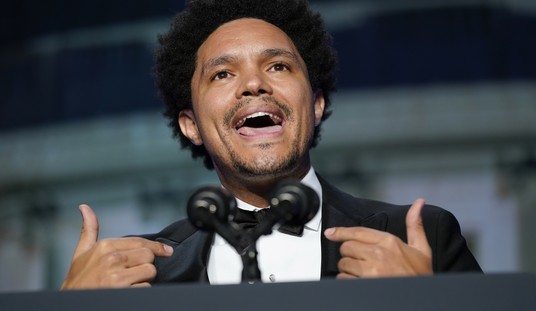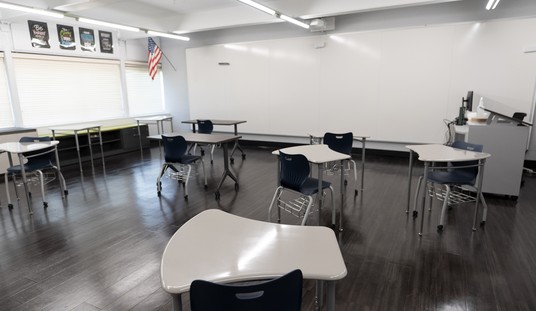The images coming from Venezuela over the past few weeks have been arresting: Troops shooting, protesters hurling rocks, people bleeding.
Just like the tear gas that clouds the scenes in photos, a complete picture of the truth in the confrontations is also hazy.
Allegations of censorship, self-censorship and photo manipulation have made it difficult for news consumers — especially Venezuelans — to form a complete picture of what is going on.
A media blackout has stymied the flow of information during some of the most intense days of clashes between anti-government protesters and authorities. In addition, strict regulations have pressured media outlets to tread softly when it comes to covering the violence.
***
Venezuela has revoked the accreditation of CNN’s Caracas-based reporter Osmary Hernandez, the US news network says.
Two other CNN journalists who had been sent to Venezuela to cover the country’s political crisis also had their working permits cancelled. …
On Thursday, during a live broadcast, Mr Maduro threatened to “take action” against CNN unless it ceased what he described as “hostile coverage”.
“I won’t accept war propaganda against Venezuela. If they don’t rectify themselves, out of Venezuela,” he said.
***
In a country with one of the highest Twitter adoption rates in the world, and at a time when independent Venezuelan news outlets have been muffled, the social network has become a critical forum for political activism.
For evidence, just compare the timeline of Venezuelan President Nicolás Maduro, Hugo Chávez’s handpicked successor, with that of opposition leader Leopoldo López, the primary organizer of the student-led protests. Maduro’s Twitter feed is a frenetic mix of threats to his “fascist” rivals, exhortations to carry out Chávez’s Bolivarian Revolution, and retweets of messages from sympathizers (including, eerily, a series of tweets written by Chávez shortly before his death last year). López’s is more spartan—informing supporters about the logistics for marches and urging them to fight non-violently for human rights.
***
Why this picture is not being shown on American TV ? U.S. media is doing a terrible job covering Venezuela. pic.twitter.com/LGoru0cCgY
— JORGE RAMOS (@jorgeramosnews) February 21, 2014
***
The Bolivarian Alliance for the Americas (ALBA) and Mercosur voiced their strong support for President Maduro — to no great surprise, given their ties to Venezuela. But the region’s less ideological multilateral organizations — UNASUR, CELAC, AND CARICOM — have hesitated to characterize the chaos and violence in Venezuela.
Most notably, the Organization of American States (OAS), arguably the regional body best positioned to push back against the apparent human-rights violations and threats to democratic integrity, gave a meek response to the developments.
The only definitive voice or leadership on the issue has come from ALBA and Mercosur — with no multilateral leadership condemning Maduro’s government for the violence and human-rights violations it perpetrates, turning a blind eye to Venezuela’s disregard for democratic institutions, failure to protect dissenting views and flagrant disrespect for civil liberties — press freedom chief among them. And all of this raises another concern: Is the region surrendering its role in advancing these causes — causes so central to our hemispheric identity?
***
From Mexico to Brazil, most Latin American governments have remained impassive as the Venezuelan government violently cracks down on growing protests, arrests opposition leaders and censors most of the country’s media.
Ideological affinity with Venezuela’s leftist government and economic interests, including the country’s oil largess, have complicated the response—or lack thereof—in the region. “The silence has been deafening,” said Michael Shifter, the president of the Washington-based think tank, the Inter-American Dialogue.
That lack of condemnation gives Mr. Maduro a lot of political leeway to increase the pressure on his opponents, according to former Mexican Foreign Minister Jorge Castañeda. “There is no Latin American government that is going to lift a finger,” he said.
***
Who is more reserved about their response to the protests:
-Sebastian Piñera, the president of Chile, has asked for an increased respect for freedom and human rights. “We want to ask for both sides to respect freedoms, including the freedom of speech and human rights, which all citizens should enjoy on behalf of the government,” he said at a cathedral in Santiago.
-Colombia‘s president Juan Manuel Santos urged Venezuela’s government to meet with its opposition. “From Colombia, I would like to call for calm, for opening channels of communication among the different political forces in Venezuela in order to ensure the stability of the country and respect for institutions and fundamental freedoms,” he said on Feb. 18.
-Peru‘s president Ollanta Humala simply pleaded for peace and dialogue (link in Spanish).
***
“This country can’t stay like this for much longer. If it’s not lack of food, it is the fear of being killed when you step out of your house to go to work”, he said. “I would like to wake up without this fear,” he added. “I have never seen this country in this state of total collapse. We are going from bad to worse, and we are losing faith”.
“Ya esta bueno ya”, is phrase which Venezuelans are hearing with increasing frequency. Roughly translated as “Enough already”, the slogan captures a wide-spread sense of discontent and growing uncertainty over the country’s future.
Scenes of political turmoil have played out for two weeks in cities across Venezuela. Pockets of destruction can be seen in the public squares of Caracas, Valencia, Maracaibo, San Cristobal and Puerto Ordaz. At least five people have died in clashes and dozens have been wounded.
Government officials claim the protests are limited, but the sense of tension – as well as government repression – is escalating. On Wednesday night, groups of protesters across the country were dispersed by National Guard troops firing teargas and rubber bullets in what has been the strongest show of government force so far.
***
Venezuela’s jailed protest leader urged supporters on Friday to keep demonstrating peacefully against President Nicolas Maduro despite violence that has killed at least six people and rocked the OPEC member nation. …
“To the police, soldiers, prosecutors and judges: do not obey unjust orders, do not become the face of repression,” Lopez said in his note from prison.
“To the youth, to the protesters, I ask you to stay firm against violence, and to stay organized and disciplined. This is everyone’s struggle.”
Having initially accused Lopez of crimes including murder and terrorism, authorities are now charging him on lesser counts of instigating arson, damage and criminal gatherings.
***
It seems to me that this was always the inevitable end game to the disastrous policies of the late President Hugo Chavez. Diverting funds from capital investment into the nation’s oil fields was politically popular. But it was also disastrous: Venezuela’s oil is sludgy stuff, hard to get at and hard to refine, and it requires a high level of capital expenditure just to keep production level. Predictably, production is now well below pre-Chavez levels. That wasn’t so much of a problem as long as oil prices kept rising, because they offset lost production. But the price of Venezuela’s crude is no longer rising…
***
The second Chavez tool of power was the shrewd deployment of the nation’s oil wealth to buy support from favored constituencies. Support Chavez, and you might get a free house stocked with appliances, a government job or at least a new playground.
Chavez held the price of gasoline to pennies per gallon and offered subsidized rice and beans in government-owned shops. Meanwhile, he withdrew police protection from the wealthier neighborhoods that despised him, deploying criminal violence as a de facto tool of political repression.
Now, however, Venezuela is running out of cash to pay for these support-buying schemes. Industries are shuttering because they cannot obtain foreign currency to buy crucial parts. Interest rates on Venezuelan debt have jumped past 15%. The economy, which managed 1% growth in 2013, is now shrinking as economic activity other than oil and gas production grinds to a stop.
***
Maduro’s second major crisis involves the loss of support within the country’s armed forces. Hugo Chávez commanded the respect or fear of uniformed services because he was a military veteran, and he cemented their loyalty by giving them lucrative posts and abetting their involvement in narcotrafficking and other corruption. Of course, some of the military — including respected retirees — steered clear of serious corruption but remained loyal to their commander-in-chief.
That military pillar of the regime has been crumbling since Chávez’s death last March. Maduro has earned little respect within their ranks. Those who have rallied around him are men he has coopted with new assignments and the very corrupt narcomilitares — notably National Assembly president Diosdado Cabello — who are hoping to hold on to their illicit fortunes by preserving the criminal and unaccountable regime.
***
If you’re an entrepreneur or a business owner in Venezuela, you’re not likely to keep throwing good money after bad there, especially if you’re a retailer like Daka. Last November Maduro ordered soldiers to occupy Daka’s five stores and forced managers to sell electronics at lower prices. In some cases looters just helped themselves.
Reuters reported that Maduro was outraged at a store selling a washing machine for 54,000 bolivars — $8,600 at the official rate. That might seem high until you hear from a business owner: “Because they don’t allow me to buy dollars at the official rate of 6.3, I have to buy goods with black market dollars at about 60 bolivars, so how can I be expected to sell things at a loss? Can my children eat with that?” said the businessman, who asked Reuters not to identify him.
When the president of the country speaks to the merchant class saying, “The ones who have looted Venezuela are you, bourgeois parasites,” that’s a sign to any entrepreneur that it’s time to round up whatever dollars you can and get out.
***
U.S. Sen. Ted Cruz, R-Texas, released the following statement regarding the crisis in Venezuela:
“As opposition protests drag into their second week in Venezuela, President Nicolas Maduro is taking a page out of the Castro playbook to violently oppress Venezuelans who are demanding an end to his disastrous rule. Activists have been detained and abused, and even shot dead in the streets. Opposition leader Leopoldo Lopez, who has emerged as a powerful voice for economic and political freedom, has been arrested and faces the summary judgment of a makeshift kangaroo court. But the perseverance of the protestors in the face of these thuggish tactics suggests there are still many who do not accept the failed socialist policies of Hugo Chavez and his hand-picked successor as inevitable.
“Venezuela can and should be free and prosperous, not suffering under the withering blight of violent crime, rampant inflation and shortages of basic necessities—not to mention close allegiances to Iran and Cuba.
***
Disturbed by #Venezuela‘s aggression against citizens & reporters. The right to protest & freedom of press are vital to a strong democracy.
— Nancy Pelosi (@NancyPelosi) February 21, 2014
***
Desde aquí apoyando VENEZUELA. pic.twitter.com/bc3RcqNtrh
— Miguel Cabrera (@MiguelCabrera) February 21, 2014








Join the conversation as a VIP Member